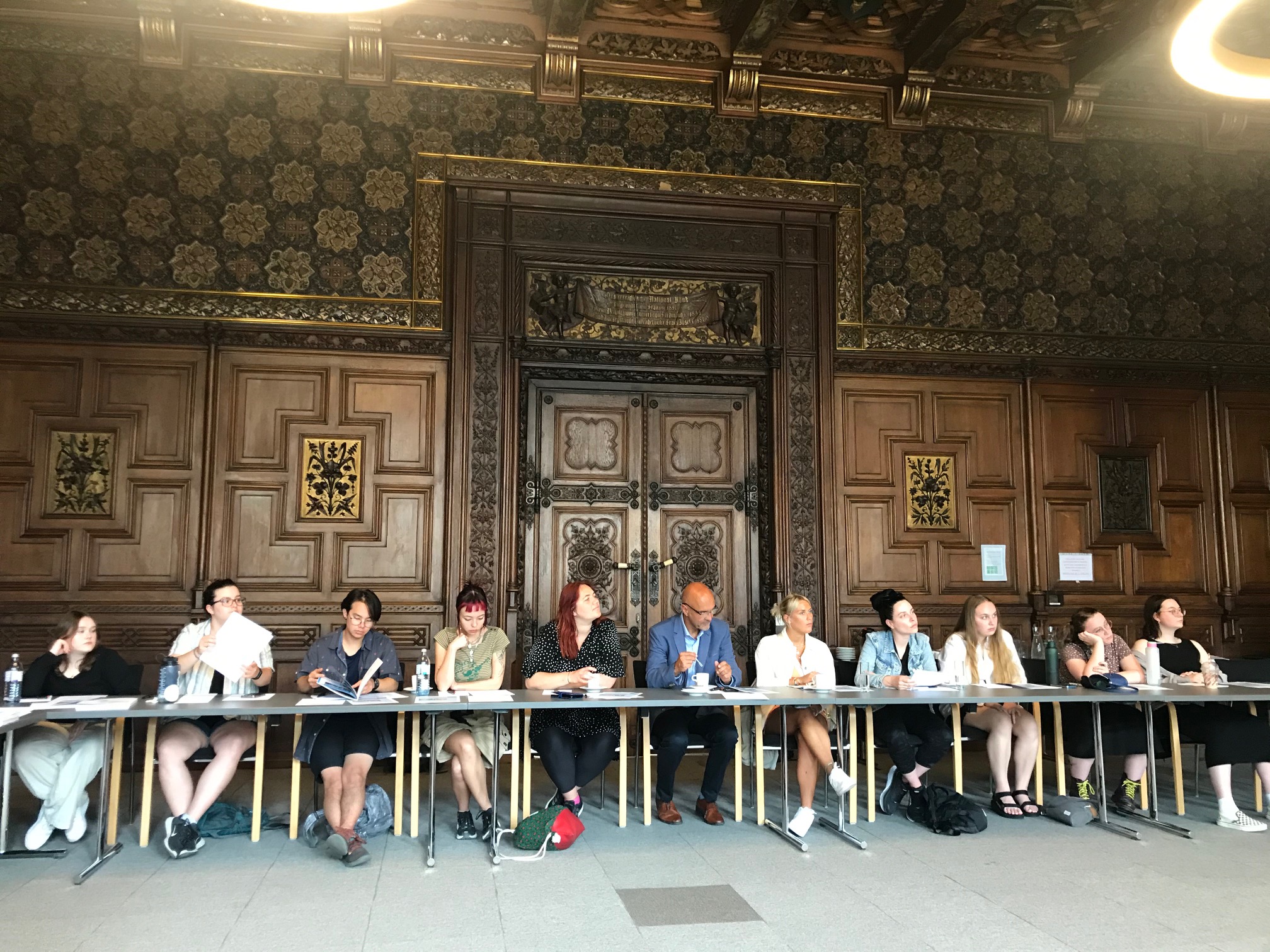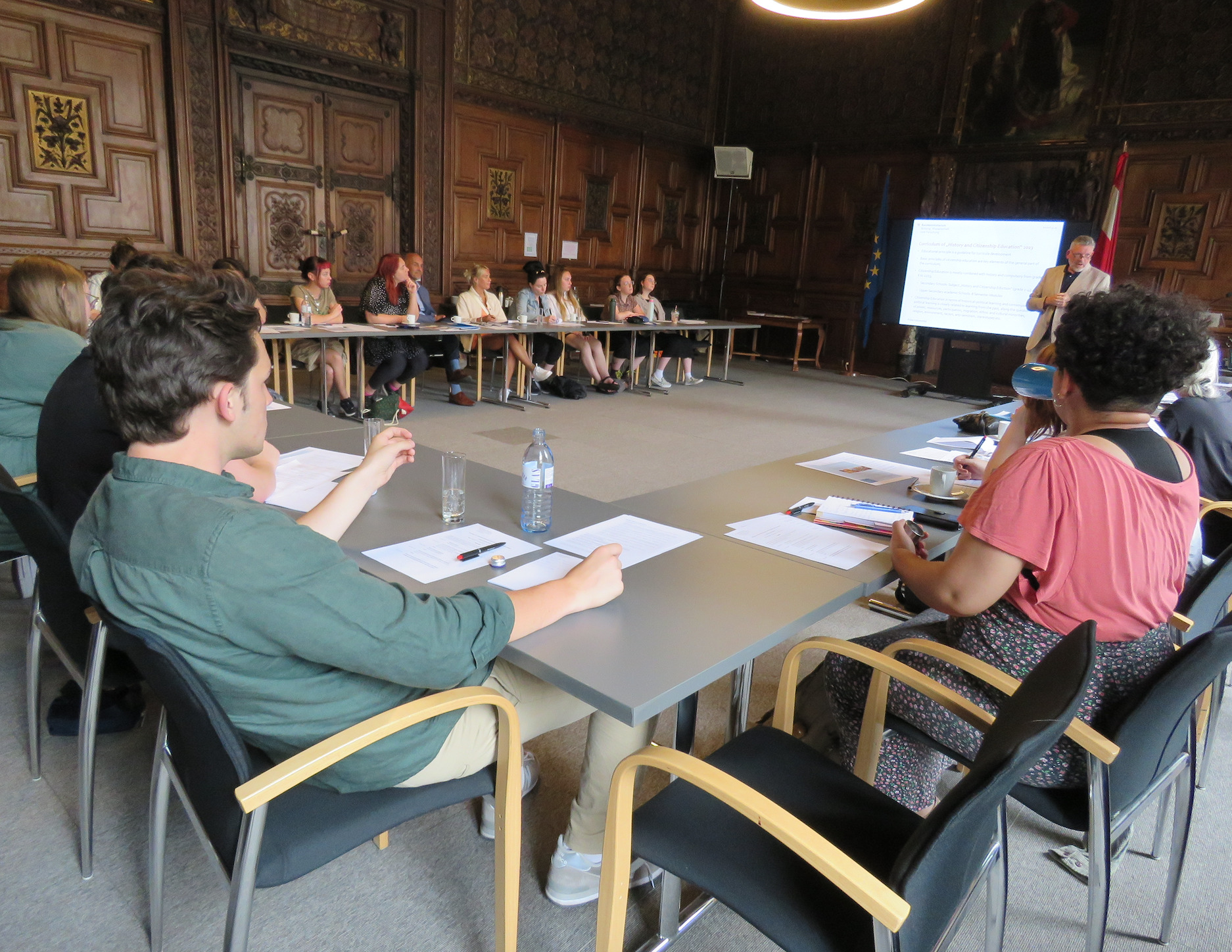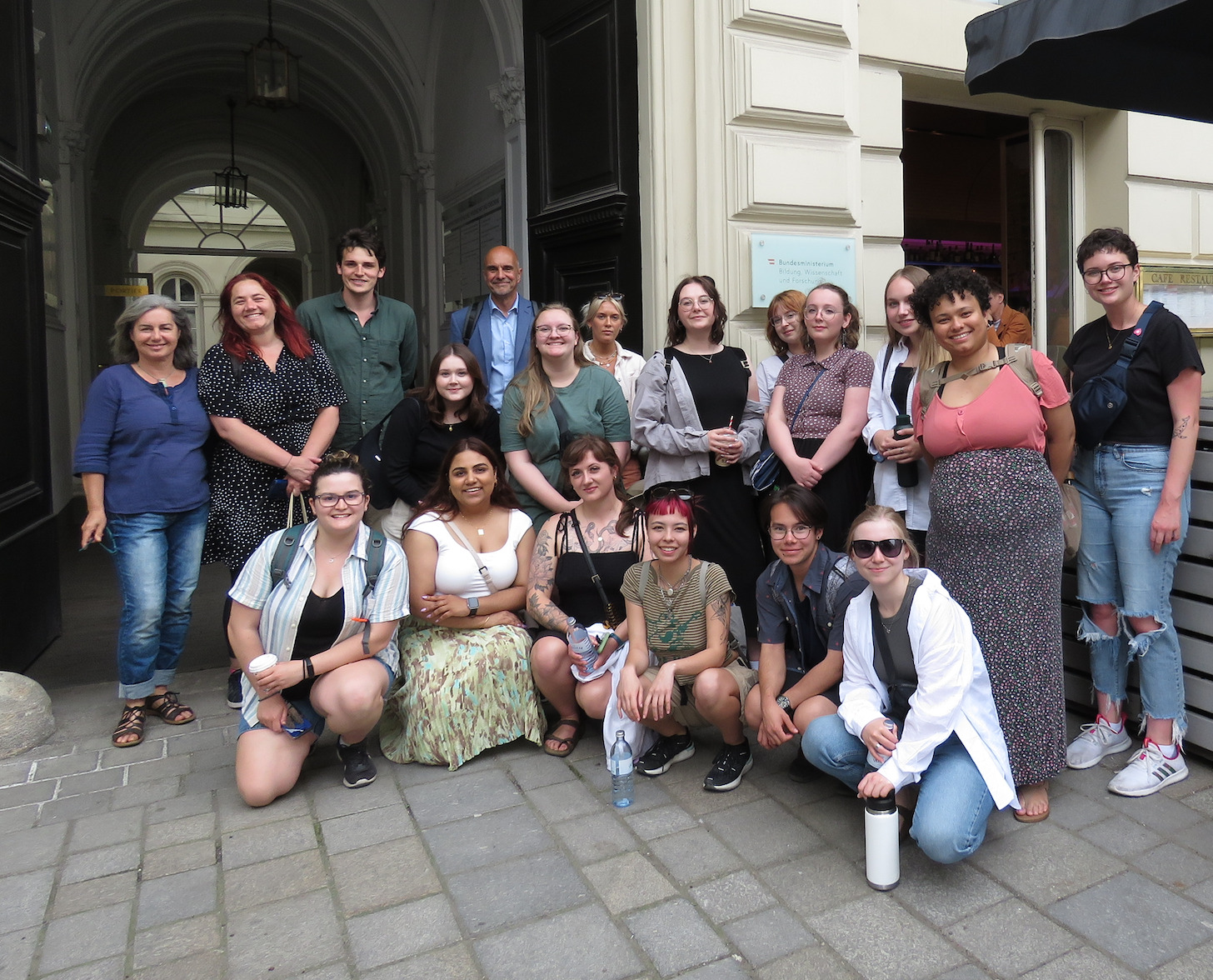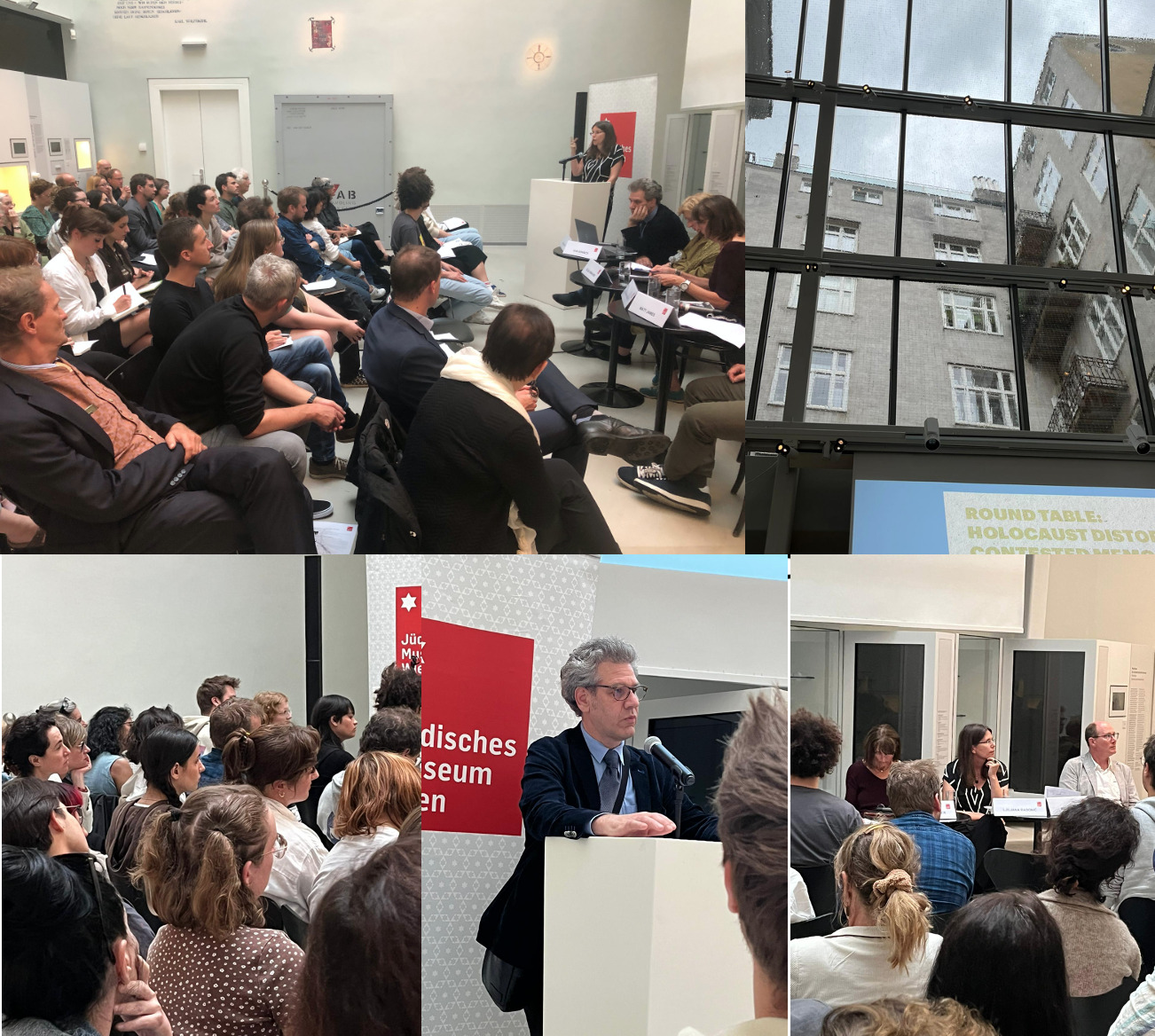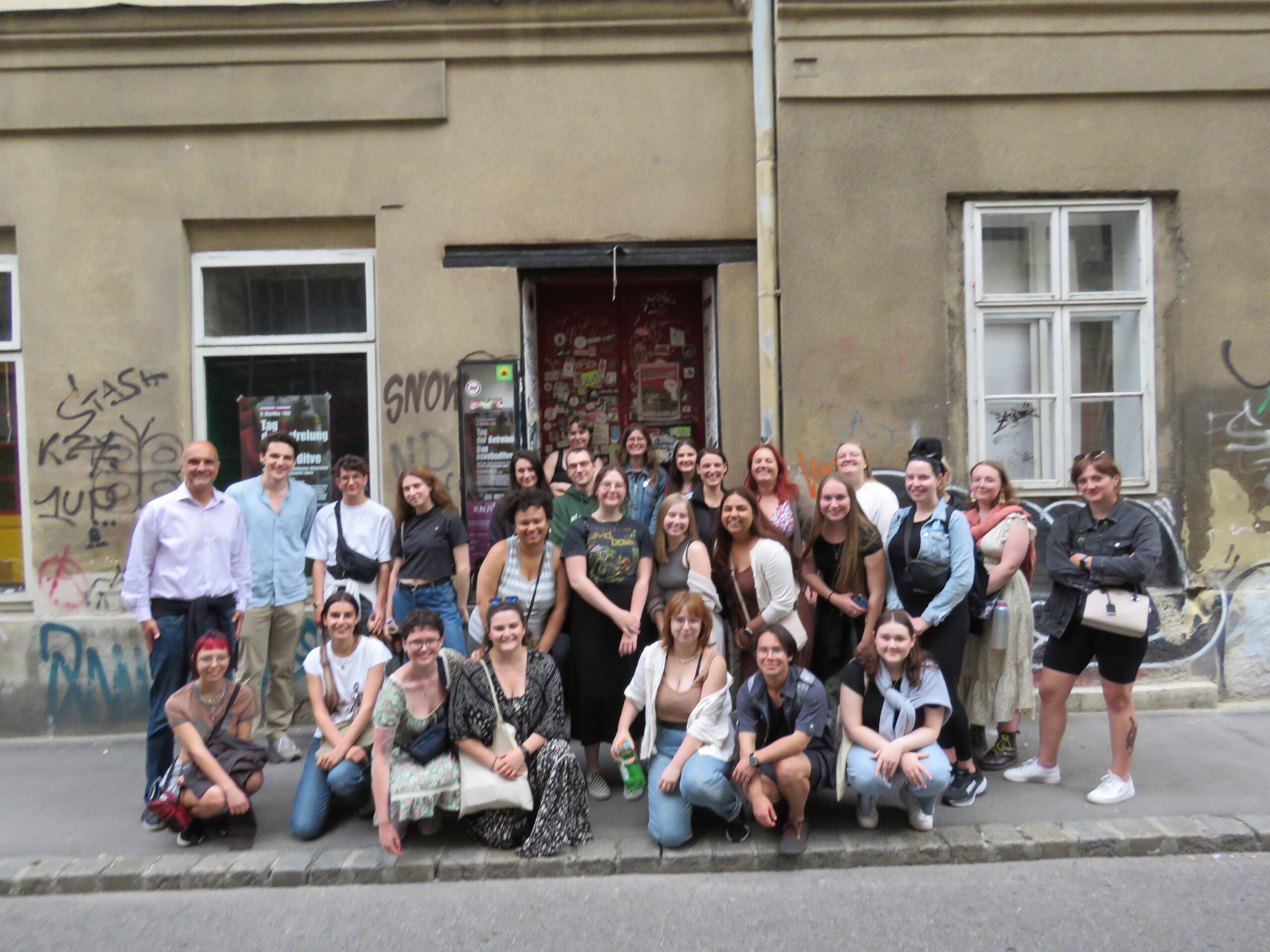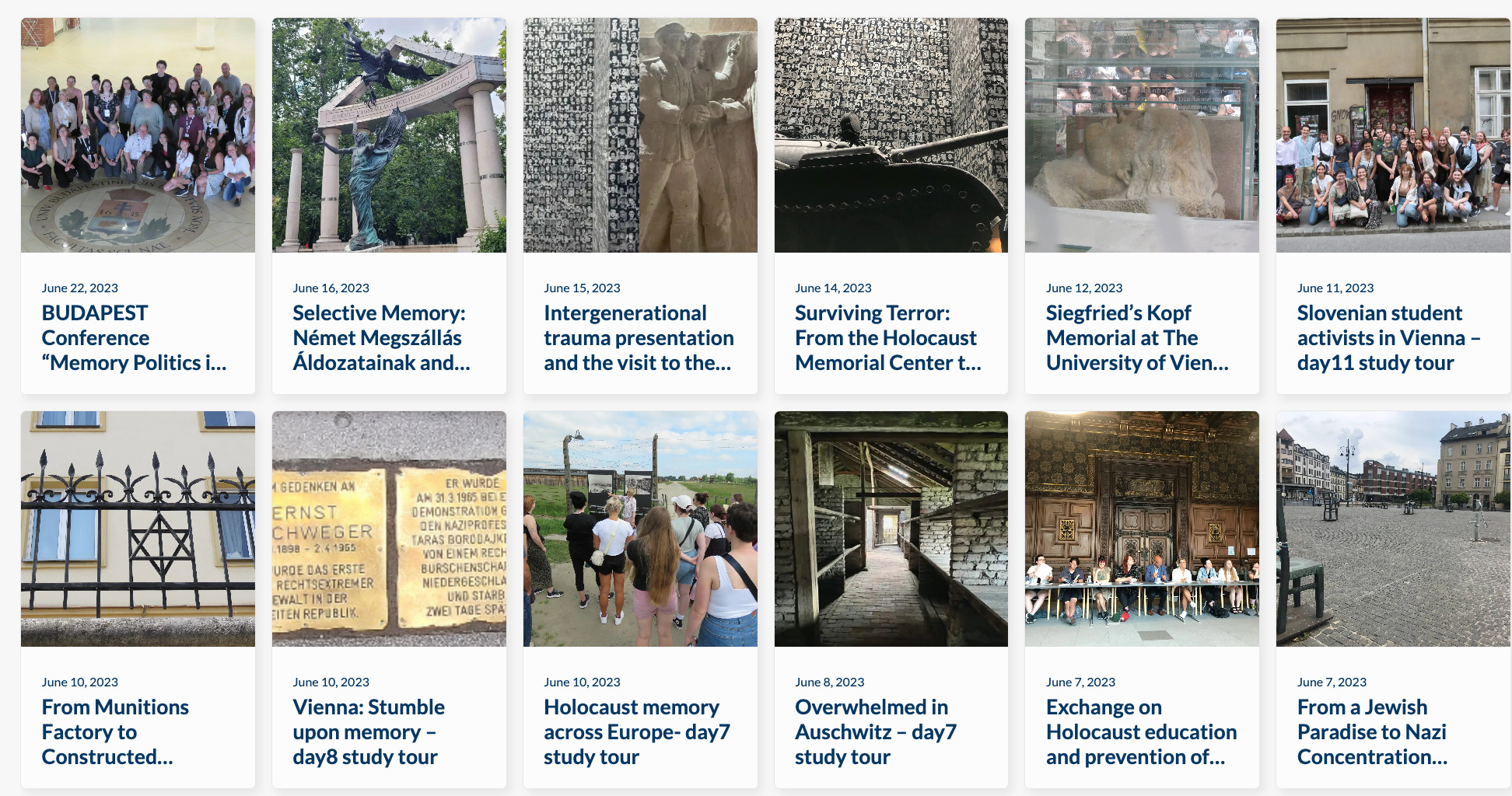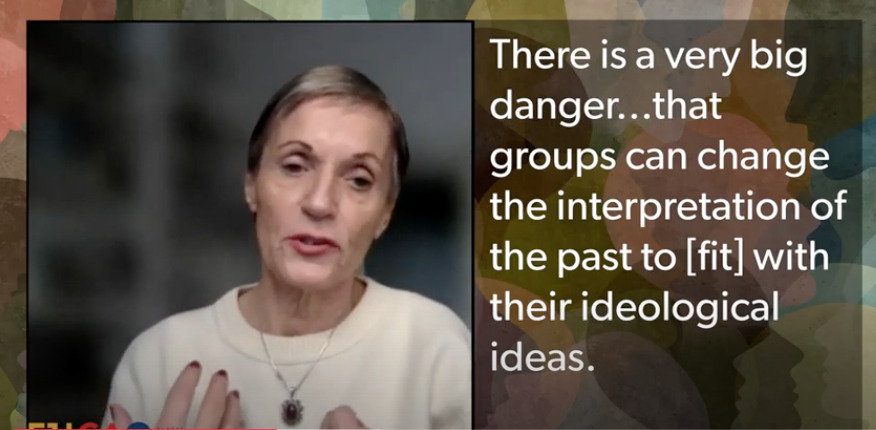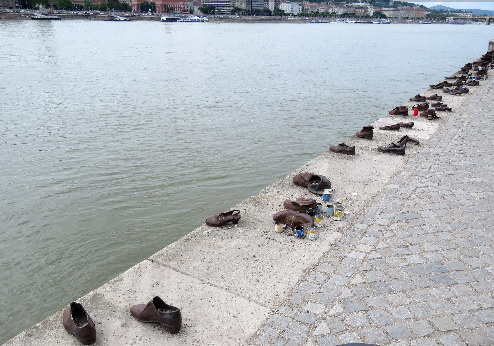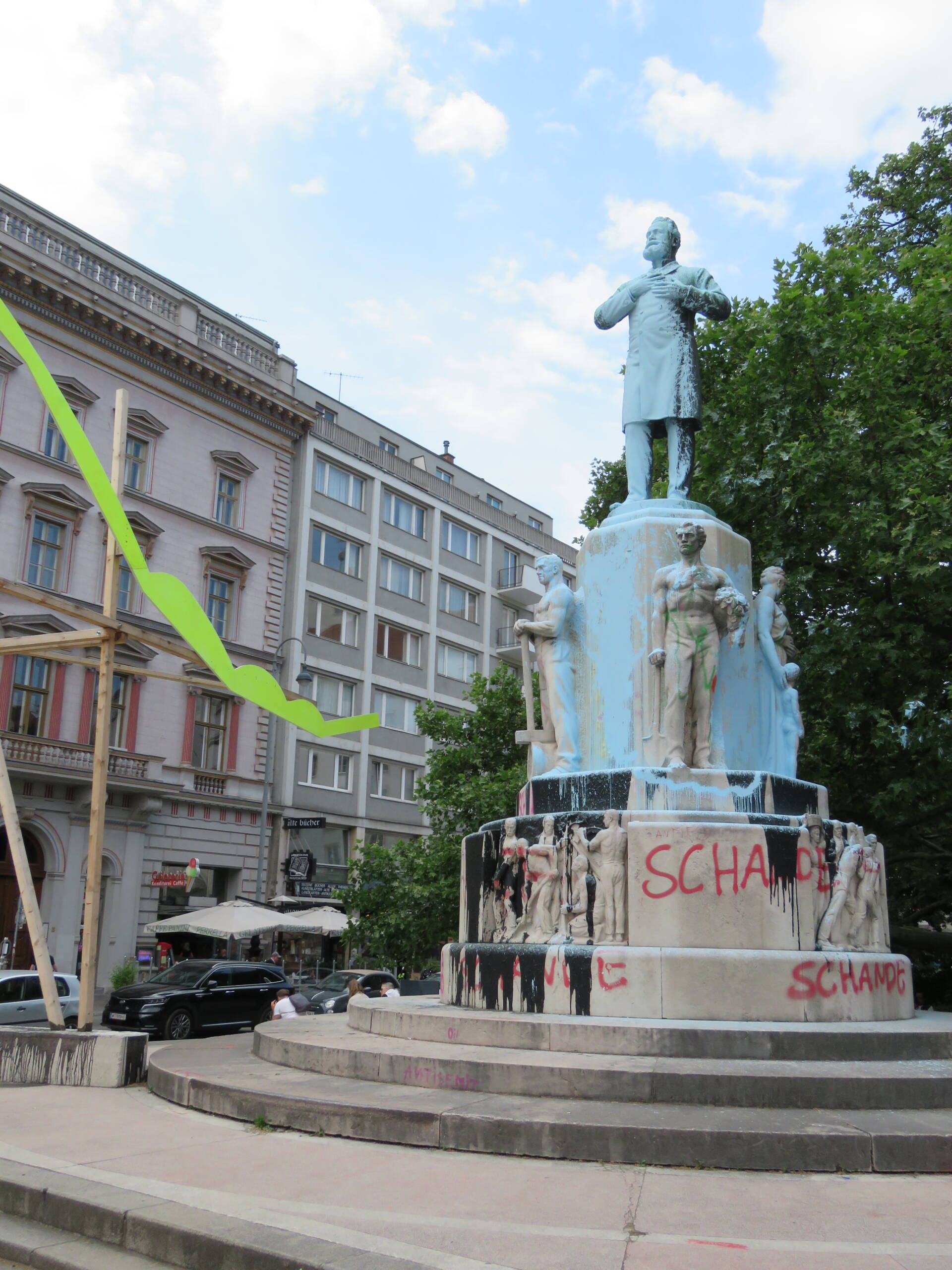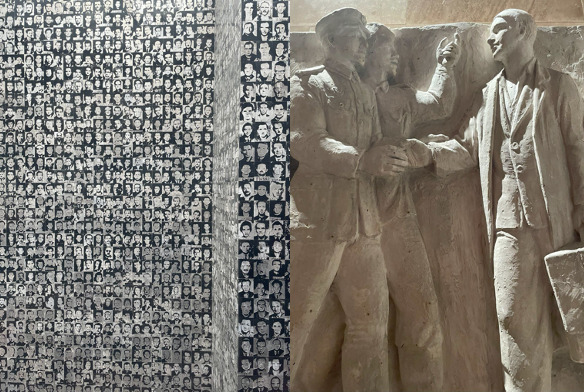Exchange on Holocaust education and prevention of anti-semitism with Austrian officials – study tour in memory politics
One of the highlights of the Study Tour in European Memory Politics was the exchange on European Holocaust Education and Prevention of Antisemitism in Austria’s capital Vienna. On June 5th, we were invited to a venue that took place in the historic festival room („Festsaal“) at the Austrian Federal Ministry of Education, Science and Research. We received a multifaceted introduction to and could engage in a Q&A session on Holocaust education and the prevention of anti-Semitism developed by the Federal Ministry of Education, Science and Research. While in awe of the beautiful historical room depicting key references of Austrian history, we were impressed by Moritz Wein’s presentation on the Austrian National Strategy against anti-Semitism. Learning about how Austrian authorities have recently introduced a complex strategy with 38 specific measures to address anti-Semitism, made our students also consider what Canada could do in its educational system to deal with the country’s colonial past. In addition, the presentation of Hakan Can from the Federal Chancellery and the Directorate General IV in the European Union (he is also the Deputy Head of the Task Force Austrian-Jewish Cultural Heritage) underlined how robust efforts of preserving the memory of the Holocaust are in many European countries. In addition, Julia Demmer from Austria´s Agency for Education and Internationalization Programme introduced the group to ERINNERN:AT, a tool for teaching and learning about National Socialism and the Holocaust. The last discussion on Holocaust and citizenship education in Austria with Manfred Wirtitsch from the Federal Ministry of Education, Science and Research highlighted the importance of understanding current politics: He raised the question how one is to approach educating in particular new citizens about the country’s past and in particular the Holocaust if, according to studies, 18% of Austrians display anti-Semitic sentiments.
During the discussion about possibilities for cooperation in the field of combating anti-Semitism and Holocaust distortion, it was noted that the initiatives in Austria address a key need in contemporary society and constitute a key component of working towards a better understanding of history in all levels of the society. However the openly anti-Semitic and conservative political movements in Austria and various countries in Europe seem to indicate that these measures might need more support from citizens such as the parents and the students. The students were surprised to hear that little feedback has been collected from these groups so far. Under these circumstances it is hard to establish the success rate of such measures if they are not developed with the input and feedback of the citizens that are targeted.
The Jean Monnet Network shared with the Austrian officials the initiative of the digital booklet on memory politics from a comparative perspective that has been spearheaded by students and is currently being made publicly available.
The participants from the University of Victoria: Oliver Schmidtke, Professor of History and Political Science; Beate Schmidtke, Project Manager of the Jean Monnet Network; Janine Wulz, Instructor at the Department of Germanic and Slavic Studies; Matt James, Professor at the Department of Political Science; Lisa Chalykoff, Professor at the English Department; Students: Jacob Moreno ; Kalea Palmer; Megan Klein ;Anika Luteijn; Elena Senecal; August Kirste-Yee; Alicia Ward; Simrat Otal; Sarah Robinson; Ana Paula Santana Bertho; Ellie Hiotakis; Rowan Lori Salverda; Vanessa Wheaton; Emma Newton; Maia Vasko; Alissa Schmidtke; Kästle Van Der Meer; Emily Duff.
Beate Schmidtke, EUCAnet Co-Lead and manager of the Jean Monnet Network European Memory Politics
